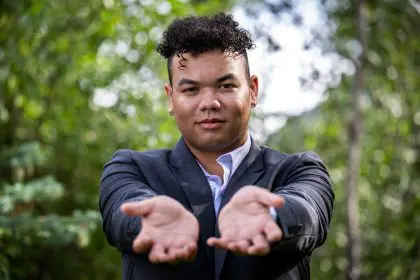As sports betting continues to gain popularity — with Jay-Z recently entering the market — a pressing question arises: Are young Black Americans missing out on long-term wealth-building opportunities? The thrill of placing a bet often overshadows the slow and steady growth of traditional investments, leading many to reconsider their financial habits.
The shift in financial habits
According to Statista, people ages 18 to 34 are the most active participants in sports betting, with 9 percent betting daily and 17 percent doing so once or twice a week. A 2024 report published by SSRN indicated that Americans are now wagering more on sports than investing in the stock market. Over $220 billion has been bet since sports betting was legalized, signaling a shift in financial risk-taking.
Accessibility of sports betting
The rise of mobile betting apps has made it easier than ever to place wagers, offering quick payouts that appeal to younger Americans seeking instant results in the larger context of . Morning Brew reports that many young people now prefer betting on sports over traditional stock market investments, drawn by the excitement and convenience.
Unique implications for Black Americans
For Black Americans, this trend has unique implications. Historically, only 58 percent of Black Americans participate in the stock market, compared to 61 percent of the overall U.S. population, according to Investment News. Barriers to entry in the stock market — such as lack of access to financial literacy and capital — have limited traditional wealth-building opportunities. Sports betting presents a more accessible, albeit riskier, option for engaging with financial markets, offering immediate rewards without the need for extensive knowledge or resources. Yet, the short-term gains could lead to long-term losses, deepening existing wealth gaps.
Emotional engagement and cultural ties
Sports betting offers emotional engagement and immediate feedback — win or lose — making it more exciting than investing in stocks, which requires patience. This instant gratification is further enhanced by betting apps that gamify the process, according to a Fortune report. Moreover, the cultural connection to popular sports leagues, such as the NFL and NBA — where Black athletes are prominently featured — adds an enticing layer for Black bettors.
The risks of betting over investing
The rise of sports betting among Black millennials and Gen Z comes with significant risks. Data shows gambling addiction has surged by 110 percent since sports betting was legalized, disproportionately affecting those without strong financial safety nets. This trend makes it crucial to consider the long-term financial consequences, particularly in Black communities where wealth-building tools have historically been limited.
The need for financial literacy and investing
While sports betting might seem like an equalizer, just 25 percent of Black Americans view investing in the stock market as a way to build wealth, compared to 58 percent of white Americans. This highlights a gap in financial literacy and access to traditional wealth-building methods, such as stock market investments, real estate and entrepreneurship. Without adequate education and resources, the allure of sports betting may overshadow the benefits of sustainable financial planning.
Promoting financial education
Efforts to close this gap are critical. Financial literacy platforms like Goalsetter and Altro aim to educate Black communities on investing and long-term wealth creation, encouraging them to see the stock market as a viable path to financial security.
Balancing fun and financial security
While sports betting can be an entertaining way to engage with sports, it’s essential to balance short-term excitement with long-term financial stability. For young Black Americans, understanding the risks of betting and incorporating more stable investments into their portfolios is crucial. The thrill of betting may be tempting, but investing in one’s future should be the ultimate goal.











